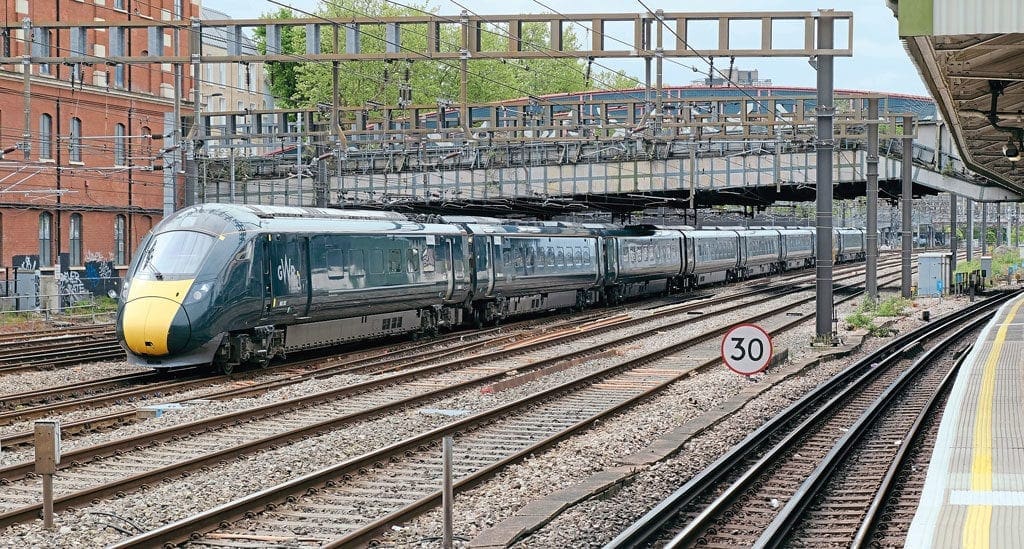
Peak time Cardiff to London ‘flyers’ taking just 102 minutes for the 131-mile journey are among the highlights of Great Western Railway’s new inter-city timetable, due to be introduced on December 15.
With all of its Class 800 Intercity Express Trains (IETs) and Class 802s now in traffic, GWR plans to take advantage of their improved acceleration to reduce typical South Wales schedules by 14 minutes to a standard one hour and 53 minutes.
A third, hourly service will run on the Cardiff to London route at peak times, running non-stop between Bristol Parkway and Paddington, and allowing passengers to travel capital-to-capital in 1 hour 42 minutes – 17 minutes faster than is possible today.
Monthly Subscription: Enjoy more Railway Magazine reading each month with free delivery to you door, and access to over 100 years in the archive, all for just £5.35 per month.
Click here to subscribe & save
From January 2020, the half-hourly trains will be able to run under 25kV AC electric power throughout, thanks to the completion of electrification to the Welsh capital. Initially, trains will continue to run on diesel power west of Newport.
Bristol also benefits from schedules accelerated by up to 17 minutes, with Paddington to Bristol Parkway reduced to as little as 67 minutes, or 79 minutes for the fastest trains to Bristol Temple Meads. A third train per hour is added at peak times and will run throughout the day from next year.
An additional 20,000 seats per day will be available on GWR trains through Bristol, although diesel operation will still be necessary between Filton and Bristol, as electrification of Filton Bank has not been delivered as planned.
Read the full story in the August issue of The Railway Magazine – out now.




